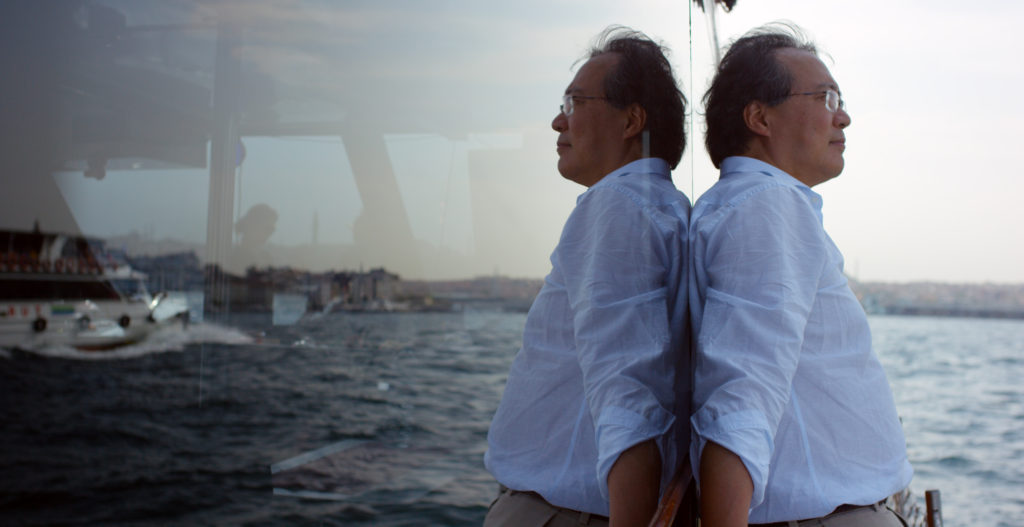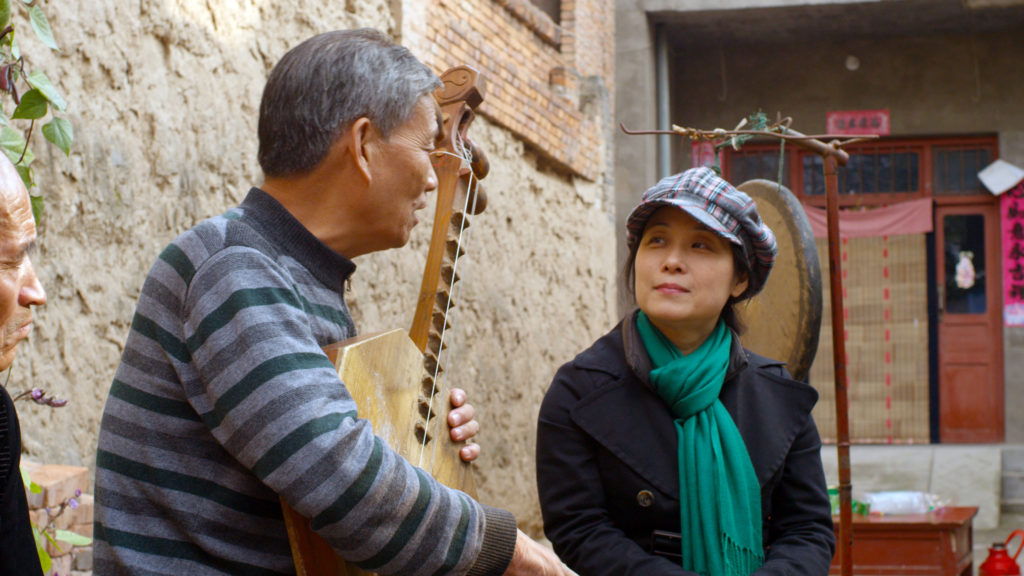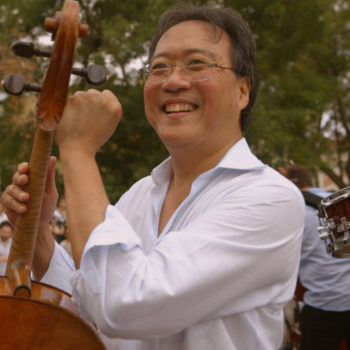Yo-Yo Ma is one of the best-known classical musicians in the world. He’s produced 90 albums and received 18 Grammy awards. And while he continues to perform Western classical music with orchestras around the world, he also practices a classical/world music fusion with his Silk Road Ensemble. They’re a kind of super group of musicians hailing from countries along the legendary trade route that ran from Europe to China.
The Ensemble is the subject of a new documentary, which is in theatres now, called “The Music of Strangers,” directed by Morgan Neville. They also have a new album called, “Sing Me Home.”
Brendan has become kind of a classical music dork in his dotage, so when he met with Yo-Yo, he confessed that the music legend is someone he’s always wanted as a dinner party guest.

Yo-Yo Ma: Well, guess what? This is gonna be a terrible, terrible time for you because you’re gonna be so disappointed from now on you’ll be dining alone.
Brendan Francis Newnam: [Laughs.] You mean I won’t have my imagine of you to keep me company after this? You’re gonna ruin that for me?
Yo-Yo Ma: You mean your imaginary friend that you always have a seat for?
Brendan Francis Newnam: That’s right. Yo-Yo Ma.
Yo-Yo Ma: “Come on, save a space for Yo-Yo! There is no Yo-Yo in the world. No, no, no, Yo-Yo’s coming for dinner. I’m gonna set the scene and he drinks only bourbon!”
Brendan Francis Newnam: This show has been nothing but one long march to ruining all my heroes, so let’s keep it going. No, I’m teasing, I’ve had wonderful encounters with some of my guests.
Yo-Yo Ma: What a life you’ve had!
Brendan Francis Newnam: Unfortunately, we have to talk about your documentary. Because I would like to just talk to you about my biography. But if you could help me, for my audience, articulate. How do you describe the music of the Silk Road Ensemble?
Yo-Yo Ma: Well, in a way, it is the music of our planet because between the different groups of music — whether it’s Malian music or Indian classical music or Arabic music or Persian music or classical music, which, of course, is part of world music, which is funny. It’s a funny thing when you say, “OK, I play classical music and then, there’s world music, and then there’s western classical music.” You know, sort of not spoken the same breath.

We’re really interested in how music is made everywhere and since everywhere has music… it’s like food, you know? What’s the local food? How it combines into different ways and creates new tastes. So it’s a constantly evolving thing and we’re just trying to understand it. Sometimes, do it as it was, but also bring it to it’s present versions.
Brendan Francis Newnam: You perform a fairly wide spectrum of music. Do you have difficulty, for lack of a better phrase, code-switching from the Silk Road Ensemble to performing Beethoven or something like that? Does it sharpen your musical talents?
Yo-Yo Ma: Brendan, this is a great question! When I was 18, I used to go and during the summer to the Marlboro Music Festival, which is a great festival for chamber music and small group ensembles that play. It’s very intimate. And to go from there and then during the year to play with an orchestra — a much larger ensemble — I thought that was hellish. I thought that took a lot of adjusting.
Obviously, 10 years after, it meant nothing to switch. And then 10 years after doing Silk Road, it’s all the same. It’s about sharing.
Brendan Francis Newnam: Well, what about the human voice? It occurs to me that you have this kind of very primal singing element to some of the music. I was thinking that for someone so technically proficient, that might be jarring, a human voice as inconsistent from one day to the next. Is that jarring?
Yo-Yo Ma: Well, yes and no. It’s sort of like, you know, you would understand that when you switch from a gin Martini to a Merlot what the difference would be. And would you ever do that in reversive sense?
Brendan Francis Newnam: That means it’s Monday instead of Saturday for me.
Yo-Yo Ma: Well that’s, that’s one thing, but if… would you do that within three hours? Theoretically because you are a very sophisticated analyzer of such social habits. Being the party expert.
Brendan Francis Newnam: I would do that within three hours, that seems reasonable to me.
Yo-Yo Ma: So, my answer to you is that part of cuisine is your dessert may have taken three days to prepare, but your main course, you might have just thought about it 30 minutes before with ingredients that you just had and you knew it would work.

So basically, what we do at Silk Road, the idea is to present something that is organic and unified and that’s where the idea of narrative and story-telling takes place. You don’t want to have a chopped up version of a meal, you want to provide a unified experience where you can get to that magic where that moment of conviviality and socializing becomes a memorable moment.
Brendan Francis Newnam: When are you happiest, or most delighted? When all these instruments and different traditions come together and introduce you to some new musical ideas or is it the passing back and forth of distinct traditions that you find interesting?
Yo-Yo Ma: Can I be incredibly naive and say that I am most thrilled when there’s a moment of humanity that is reached and we all know it. It’s like that magical moment at a dinner party, just by some random example.
These things actually are nice and you go from a speaking with your table companion to the left and to the right and there becomes a one-table conversation and everybody’s listening and something gets passed around that is deeply meaningful to all. Somehow, it’s not a pre-designed subject, but something everybody comes to that moment and there’s a realization why we have a dinner party.
You know, the whole package is sort of saying, “We’re so grateful to be alive, we’re so grateful for friendship to exist because this is what it’s all about.”


